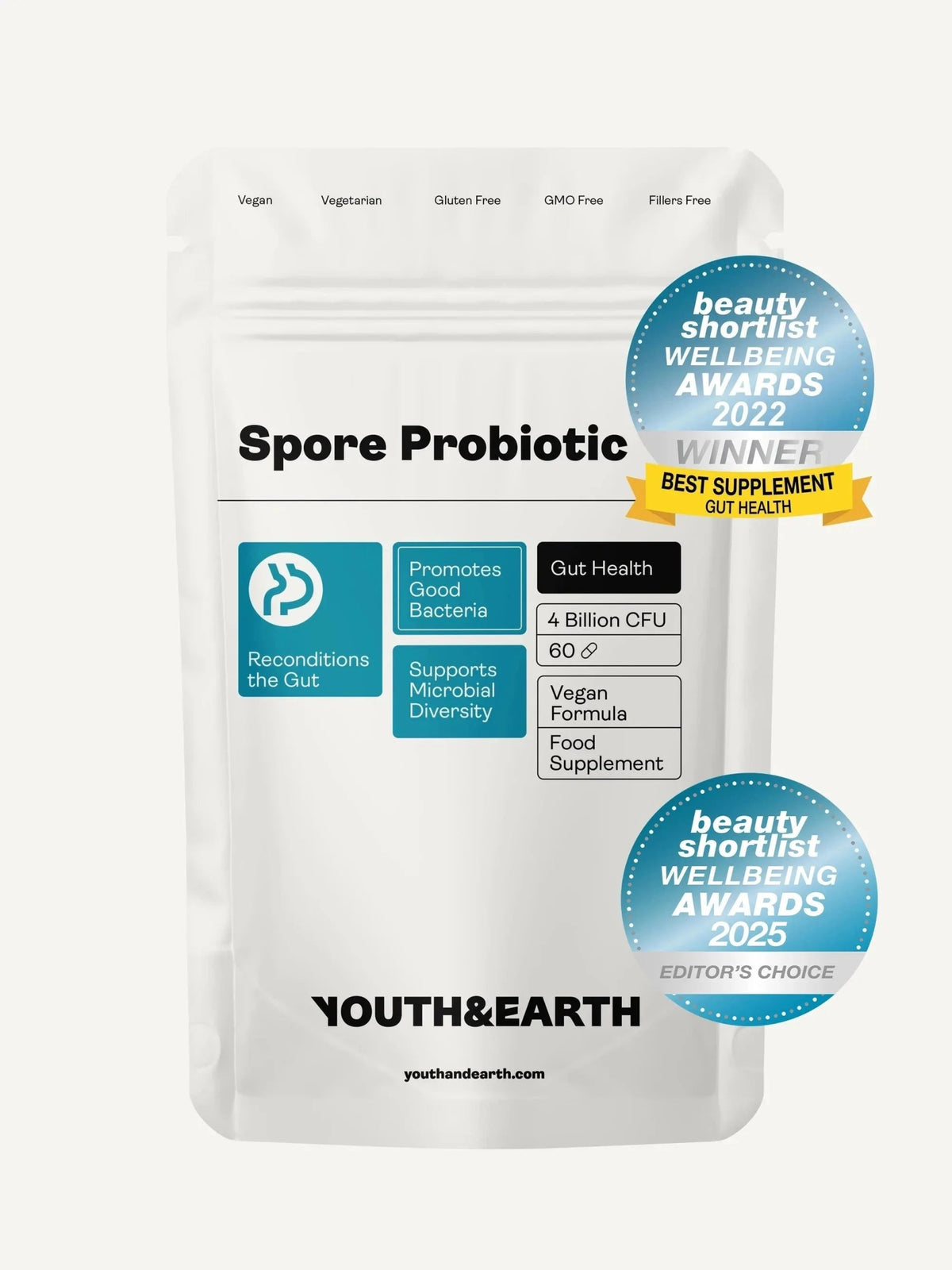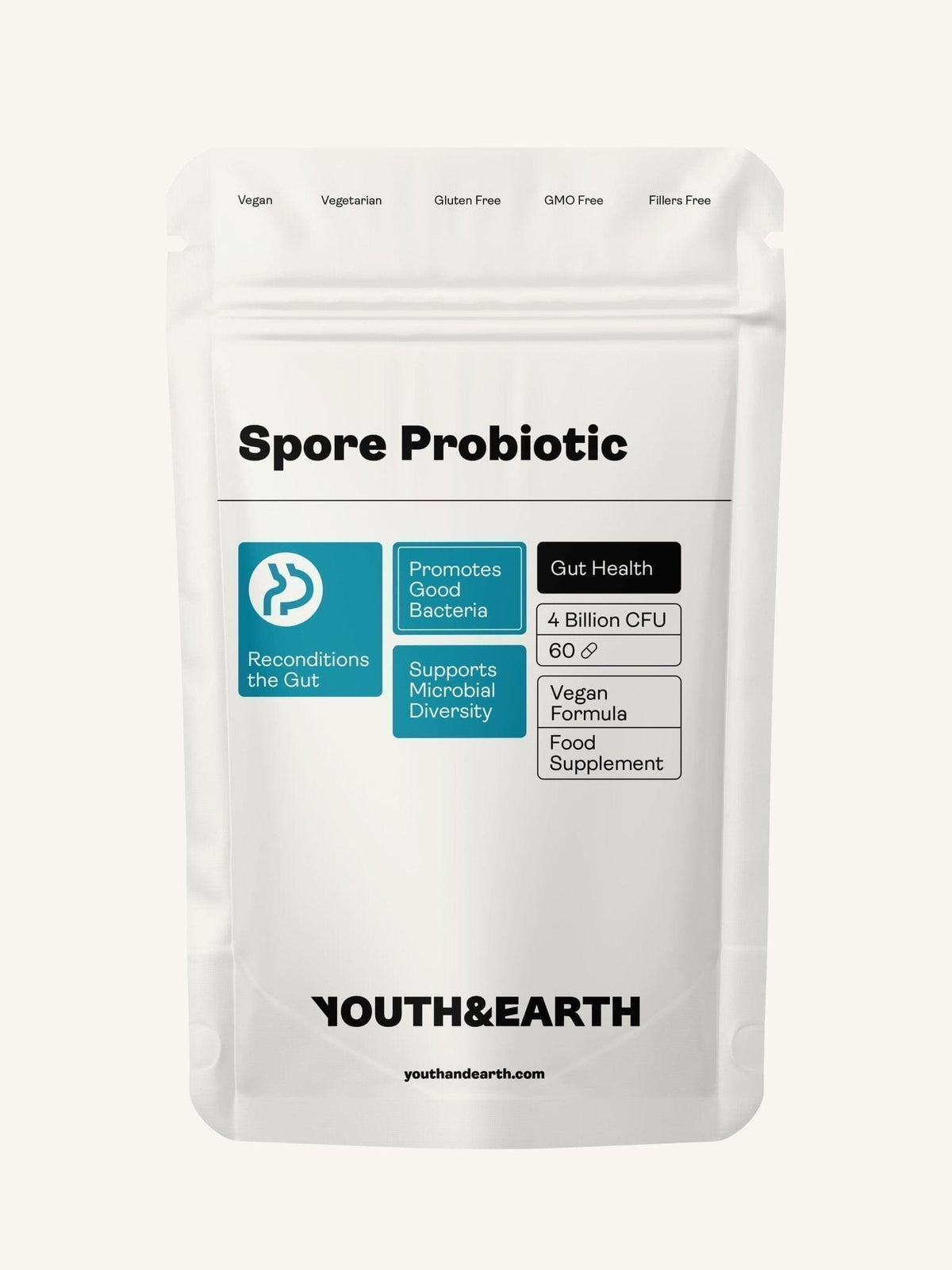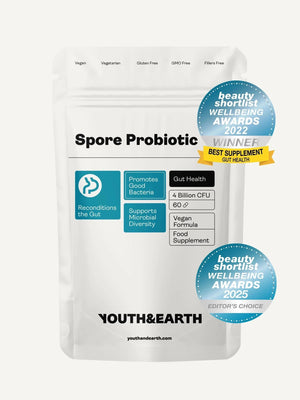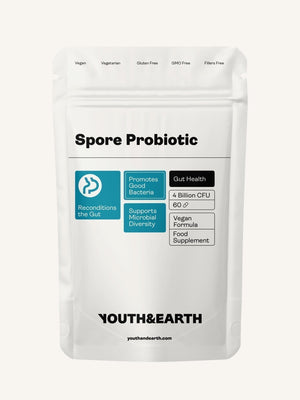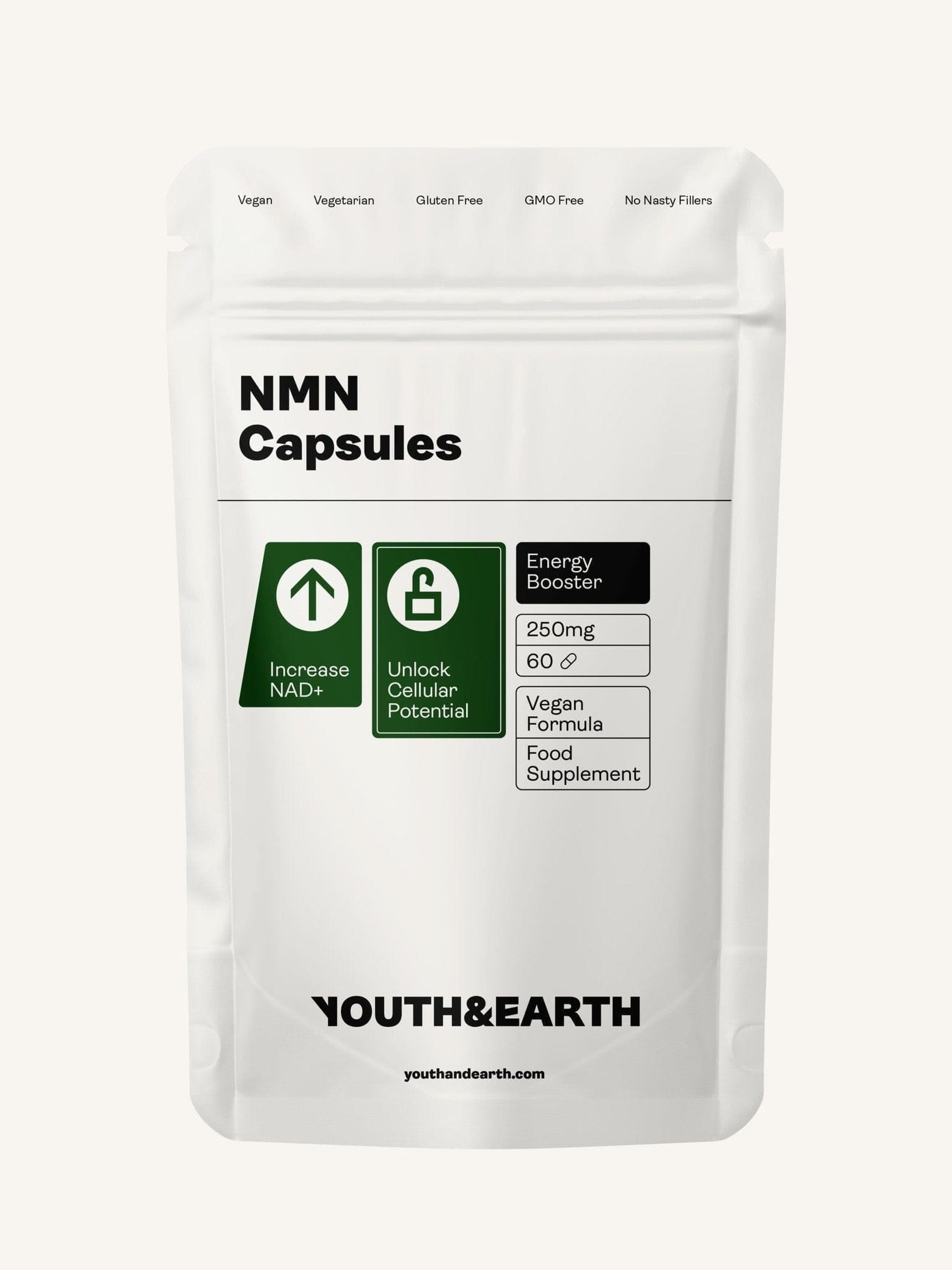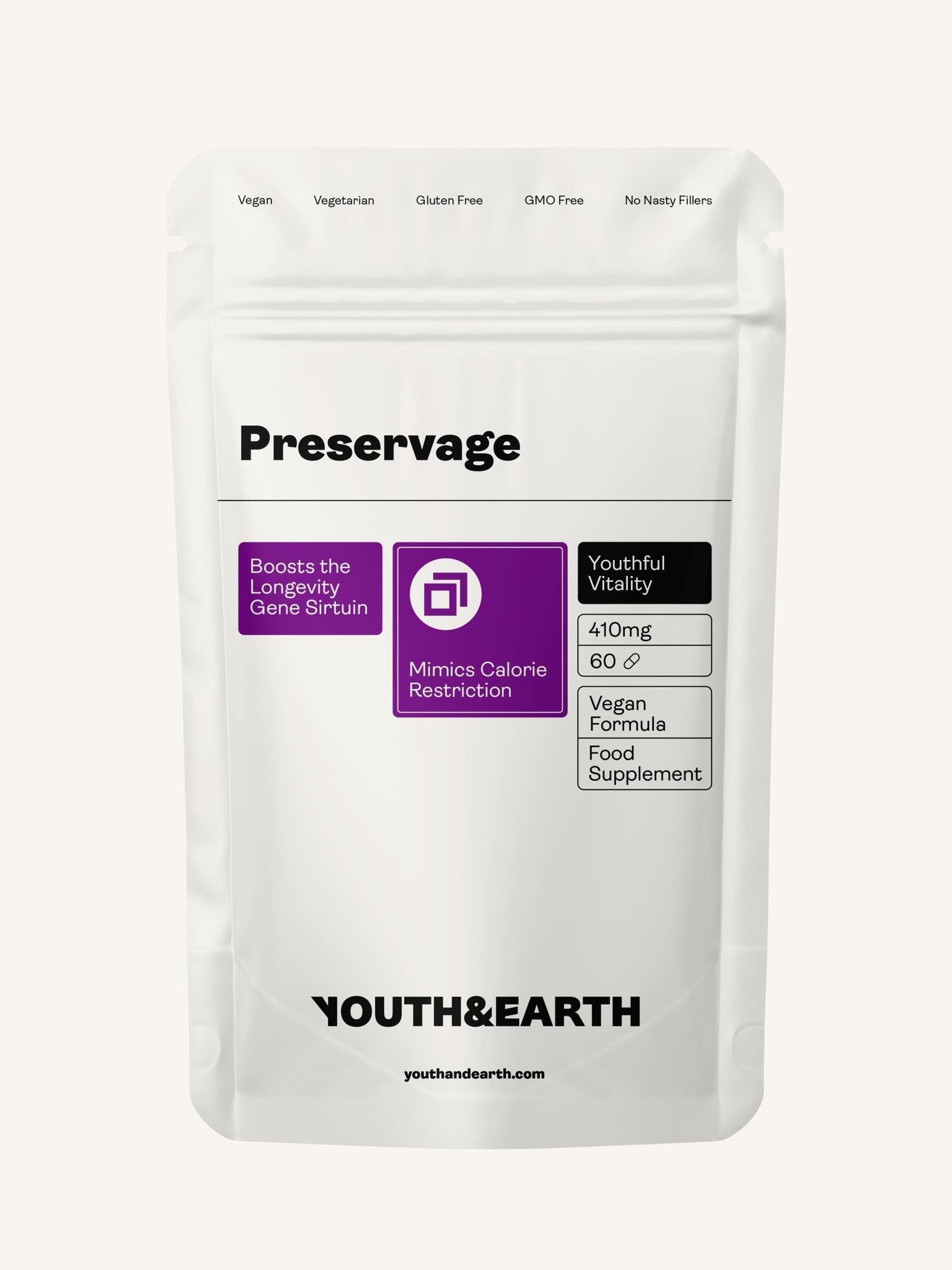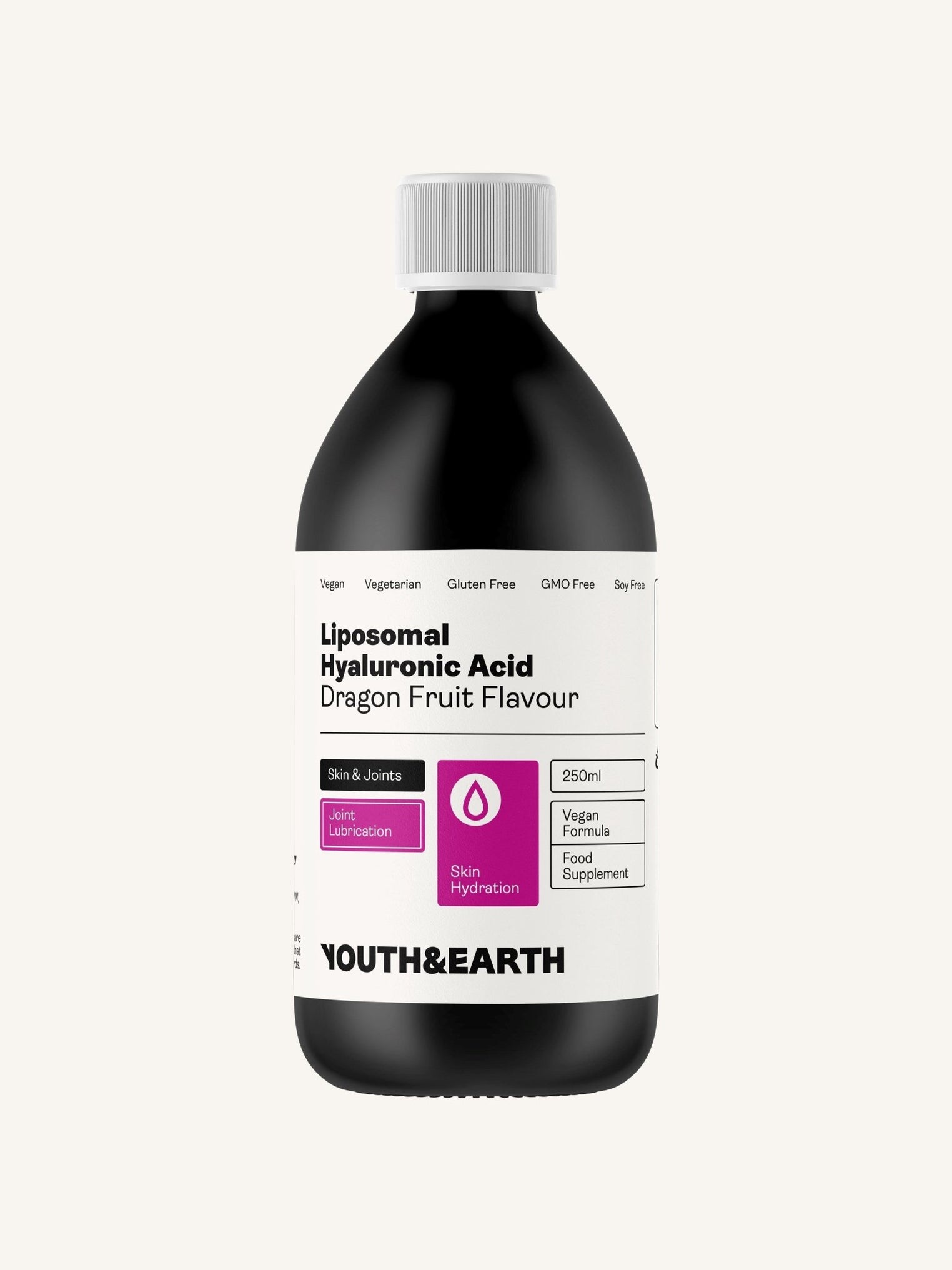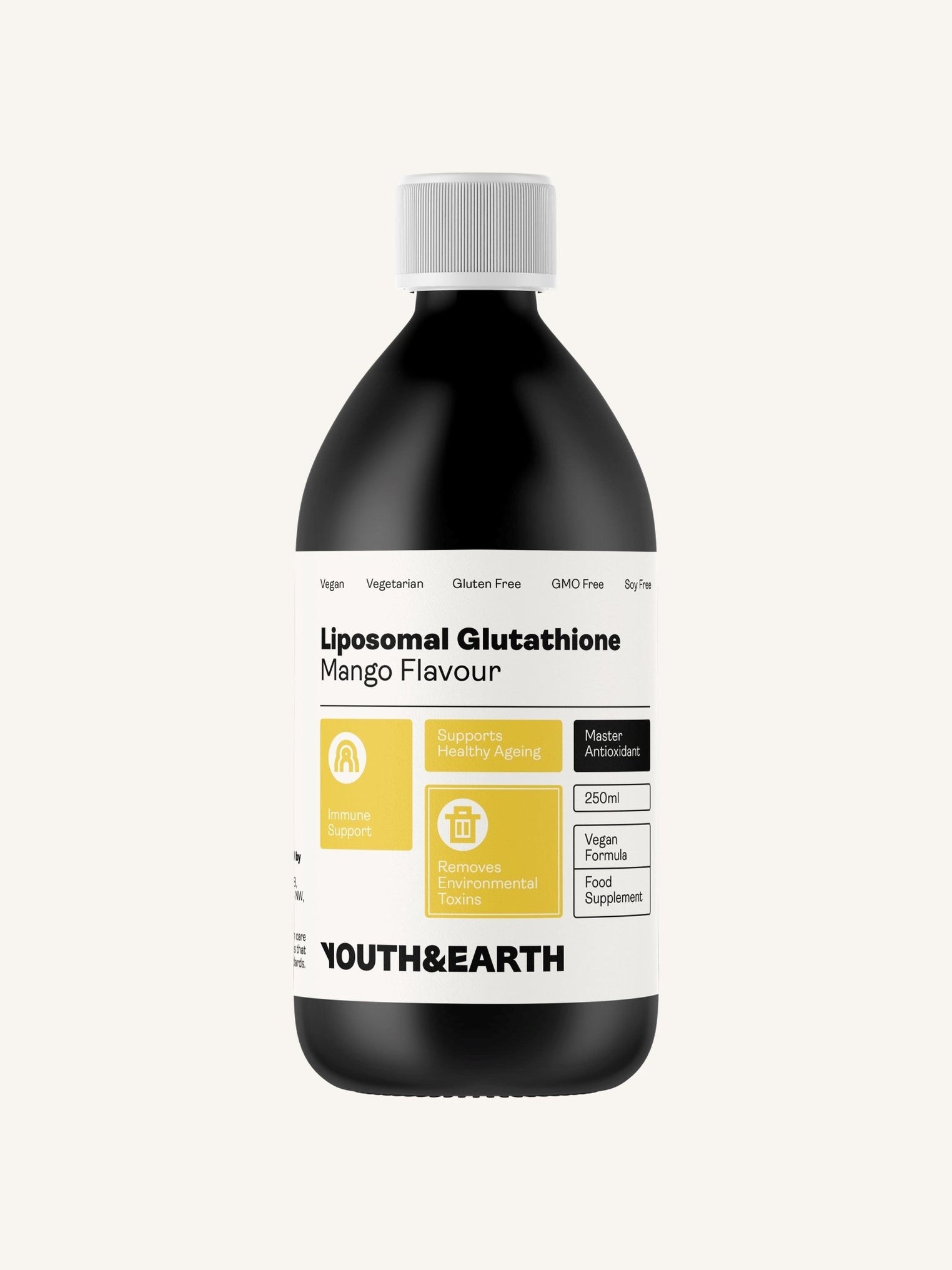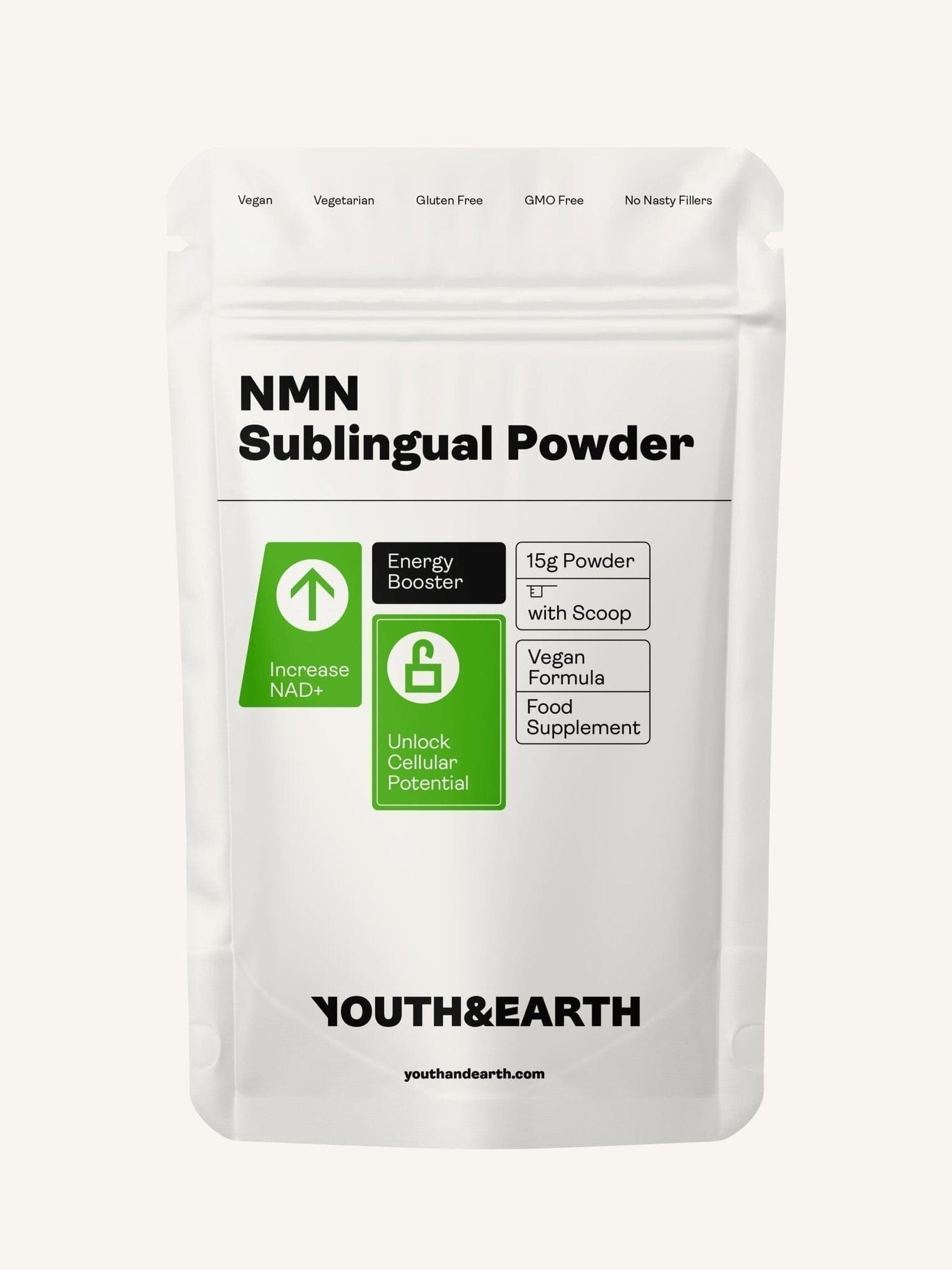Tenho a certeza de que a grande maioria de nós já teve pelo menos um familiar que costumava comer areia. Não estou a falar de tartes de lama, ou de brincar ao faz-de-conta, não, apenas de simples punhados de terra. Agora, antes de questionarmos o gosto adquirido do Joãozinho, ele podia estar a fazer alguma coisa.
O que Joãozinho pode ter comido e acrescentado à sua dieta são organismos minúsculos que podem ter beneficiado a sua saúde em geral.
Vamos continuar a ler e descobrir mais...
Probióticos à base de esporos ou SBOs (organismos do solo) são os nomes dados a esses minúsculos organismos encontrados naturalmente no solo. Esses SBOs podem sobreviver em condições adversas e têm uma resistência natural ao ácido estomacal, tornando
probióticos à base de esporos uma escolha perfeita quando se trata do nosso trato digestivo.
No mundo acelerado de hoje, repleto de fast food e refeições processadas, os distúrbios intestinais são comuns e, infelizmente, estão quase a tornar-se a norma. É muito provável que lhe tenha sido receitado a si, a um familiar ou a um amigo algum tipo de probióticos ou que os esteja a tomar atualmente.
Com hábitos de colonização baseados em esporos, resiliência ao ácido estomacal e resistência ao calor e à luz, não é surpresa que estejam rapidamente a tornar-se os probióticos preferidos. Vamos analisar mais detalhadamente algumas das razões para isso...
O QUE SÃO OS PROBIÓTICOS À BASE DE ESPOROS?
"Esquecer como se cava a terra e como se cuida do solo é esquecermo-nos de nós próprios."
— MAHATMA GANDHI, ativista indiano.
Antes das tecnologias modernas e das várias técnicas de esterilização e métodos agrícolas actuais, era natural ver algum solo nos alimentos que produzíamos ou colhíamos. Os SBO eram abundantes na nossa vida quotidiana, quer fosse nos produtos frescos que colhíamos ou simplesmente na água que bebíamos de fontes ou poços frescos.
O nosso intestino foi exposto a uma grande variedade destas diferentes espécies de probióticos à base de esporos e, a menos que estejamos a consumir os nossos próprios produtos caseiros ou, pelo menos, produtos biológicos crus, muito poucas destas bactérias são deixadas nos alimentos que estamos a comer.
Ao contrário dos probióticos convencionais, que recolonizam o intestino reproduzindo-se e formando uma população estável e replicante, temos de nos maravilhar com os probióticos à base de esporos.
Probióticos à base de esporos :
- Recondicionar o intestino através do aumento da diversidade microbiana.
- Promovem o crescimento de bactérias benéficas.
- Eles permanecem no intestino entre 21 e 28 dias, ondeutilizam a deteção de quórum (a partilha de informação entre bactérias individuais dentro das colónias para coordenar a atividade em toda a colónia) para compreender o seu ambiente microbiano e identificar bactérias patogénicas e benéficas.
- Podem destruir as bactérias intestinais nocivas e produzir metabolitos que estimulam o crescimento de bactérias úteis.
- Os esporos das bactérias deixam o corpo através das fezes cerca de 21-28 dias depois de entrarem e voltam ao seu estado dormente.
Os probióticos à base de esporos ou probióticos à base de solo são produzidos a partir de bactérias do solo e contêm endosporos. Esses endosporos envolvem as estirpes probióticas e são altamente resistentes ao ácido estomacal. Ao contrário de muitos outros probióticos no mercado, essa evolução permite que os probióticos à base de esporos sobrevivam à viagem pelo nosso trato digestivo, resultando potencialmente numa melhor entrega dos probióticos aos intestinos.
Então, como é que estes SBO se protegem?
Pense nos seus SBOs como uma tartaruga com a sua espessa carapaça exterior. Quando a tartaruga se sente ameaçada, retira-se simplesmente para a segurança da sua carapaça. Quando o ambiente que a rodeia se torna novamente seguro, sai da carapaça e volta a estar ativa.
Tal como aquela tartaruga, quando o ambiente se torna desfavorável, como o calor armazenado numa prateleira de loja ou os ácidos estomacais agressivos, estas bactérias passam por um processo de esporulação. Este processo de várias etapas faz com que a célula se divida dentro de si mesma, criando um endosporo. Este endósporo contém todo o material ativo da célula ativa e é liberado assim que a célula vegetativa se degrada.
Assim, enquanto estas SBOs permanecem inativas dentro das suas cápsulas em condições desfavoráveis, como na prateleira da loja ou dentro do seu frasco de suplementos. Pesquisa sobre probióticos à base de esporos revelam que, 8 minutos após os bacilos se fixarem no epitélio intestinal, esses SBOs tornam-se ativos e começam a colonizar o intestino grosso.
Ao contrário de muitos outros probióticos no mercado, esta evolução permite que os probióticos baseados em esporos sobrevivam à viagem no nosso trato digestivo, resultando potencialmente numa melhor entrega de probióticos aos nossos intestinos, onde são mais necessários.
PARA QUE SERVEM OS PROBIÓTICOS À BASE DE ESPOROS?
Os probióticos à base de esporos apoiam as junções apertadas no revestimento do estômago. Sem essas junções apertadas, o intestino torna-se permeável e permite que moléculas que deveriam estar contidas no nosso trato gastrointestinal entrem na corrente sanguínea. Essa permeabilidade intestinal, frequentemente causada por inflamação, é conhecida como "intestino permeável". Um estudo de 2017 concluiu que os probióticos à base de esporos reduziram os sintomas da "síndrome do intestino permeável".
Os probióticos são geralmente conhecidos pela saúde intestinal, mas um intestino saudável traz benefícios que vão muito além de movimentos intestinais adequados. Sistemas digestivos saudáveis têm sido associados amelhoria da resposta imunológica e da saúde mental.
Os probióticos à base de esporos têm os seguintes benefícios
-
Ajudando a função cognitiva em idosos
—
Nos últimos anos, observou-se uma ligação entre a função cognitiva e uma microbiota intestinal saudável, especialmente em idosos. Atualmente, estudos sobre probióticos demonstraram que
pode melhorar
a função cognitiva, altamente benéfica para a população idosa.
- Melhorando a SII
—
Os probióticos têm demonstrado
melhorar os sintomas da
SII, nomeadamente combatendo a inflamação, retardando os movimentos intestinais, reduzindo a produção de gases através do equilíbrio da flora intestinal e melhorando as funções de barreira do sistema imunitário.
-
Diminuição da síndrome do intestino permeável
—
O desequilíbrio da flora intestinal pode causar intestino permeável. Ao restaurar o ambiente intestinal e reequilibrar a microbiota, os probióticos formadores de esporos podem ajudar a
reparar o revestimento intestinal.
-
Tratamento da diarreia
—
Estudos demonstraram que os probióticos melhoram a
diarreia associada a antibióticos
e proporcionam alívio da diarreia do viajante.
-
Melhorar a dor muscular pós-exercício
—
A
estirpe probiótica à base de esporos
Bacillus coagulans tem sido estudada para auxiliar no tempo de recuperação de dores musculares.
- Diminuição da incidência de infeções do trato respiratório—
Estudos de investigação de probióticos à base de esporos administrados a idosos mostraram efeitos positivos no sistema imunológico para diminuir as infecções.
- Melhorando a sua conexão intestino-cérebro — O eixo intestino-cérebro refere-se às ligações químicas e físicas entre o intestino e o cérebro. Milhões de nervos e neurónios viajam entre o intestino e o cérebro; no entanto, muitos desses neurotransmissores e outras substâncias químicas que afetam o cérebro são produzidos no intestino. Estudos descobriram que, ao alterar as bactérias no intestino, é possível melhorar a saúde geral do cérebro. Esses probióticos provavelmente foram chamados de ″psicobióticos″ e demonstraram melhorar casos de stress, depressãoe ansiedade.
PORQUE É QUE UM INTESTINO SAUDÁVEL É IMPORTANTE PARA O CORPO E PARA A MENTE?

A importância de um microbioma intestinal saudável não pode ser ignorada, e pesquisadores e profissionais de saúde estão a fazer o possível para educar os consumidores. Há mais células imunitárias no seu intestino do que em qualquer outra parte do corpo
70% do sistema imunitário
está localizado no intestino.
A maioria das doenças crónicas não só pode estar associada à disfunção intestinal, como também pode ser significativamente reduzida através de correções na alimentação, nomeadamente demência, Parkinson, diabetes tipo II, artrite reumatoide e lúpus.
Atualmente, estudos estão a examinar os benefícios dos probióticos para a saúde oral e dermatológica. Como mencionado acima, vemos como um intestino saudável é importante para um estado mental saudável.
COMO SABER SE UM PROBIÓTICO É À BASE DE ESPOROS?
Os probióticos à base de esporos começam com a palavra "Bacillus", nomeadamente Bacillus subtilis HU58, Bacillus coagulans SC208 e Bacillus clausii SC109. No entanto, estudos e pesquisas adicionais realizados em 2009 pelo Dr. Hong (Universidade de Londres, Royal Holloway) mostram que a concentração de endosporos de Bacillus no intestino humano é superior à concentração encontrada naturalmente no solo.
Isto sugere que, embora os endosporos do bacilo utilizem o solo como meio de transporte de hospedeiro para hospedeiro, a sua verdadeira casa está localizada no próprio intestino. Quaisquer estirpes listadas sem "Bacillus" no início, são bactérias sem esporos e mais "frágeis", susceptíveis de perecerem no nosso ácido estomacal. Isto deve-se ao facto de a própria estirpe probiótica não estar envolta num invólucro exterior (os endosporos nos probióticos baseados em esporos), o que as torna muito delicadas e facilmente destruídas.
Bacillus subtilis HU58
O Professor Simon Cutting Simon Cutting, da Universidade Royal Holloway (razão pela qual esta estirpe baseada em esporos tem as letras HU), foi o especialista em esporos que isolou pela primeira vez a estirpe Bacillus subtilis HU58 do microbioma humano. Simon Cutting e a sua equipa estudaram extensivamente e em pormenor a estirpe HU58 de Bacillus subtilis no Royal Holloway College da Universidade de Londres. A investigação sobre a genética e as propriedades fisiológicas do Bacillus subtilis tem sido extensa. A Royal Holloway, University of London (RHUL) fabrica-o sob licença.
Esta estirpe probiótica à base de esporos trata perturbações digestivas, diarreia induzida por antibióticos, colite ulcerosa, vaginose bacteriana, infecções do trato urinário (ITU) e infecções vaginais por cândida. Além disso, pode acrescentar benefícios nutricionais a uma grande variedade de alimentos (bolachas, pão, produtos lácteos, etc.), suplementos (comprimidos, cápsulas) e bebidas.
Vários estudos demonstraram uma maior eficiência de esporulação e germinação com HU58TM. Apesar da sua estabilidade a níveis extremos de pH e a temperaturas elevadas, é resistente à dessecação, aos antibióticos e até ao ambiente do estômago.
Anteriormente conhecido como Vibrio subtilis (em 1835), foi renomeado Bacillus subtilis em 1872. É um dos organismos bacterianos mais reconhecidos e produz endosporos que lhe permitem persistir em ambientes adversos de calor, acidez e salinidade. Estudos demonstraram que ele tem fortes benefícios para o sistema imunológico. Na década de 1950, foi usado como base para antibióticos tópicos no tratamento de abrasões.
Bacillus clausii
Há mais de 55 anos, o Bacillus clausii é resistente a condições físicas e químicas (devido aos seus endosporos). É a estirpe à base de esporos mais utilizada em todo o mundo e é altamente resistente à maioria dos antibióticos durante o tratamento com antibióticos.
Bacillus coagulans
O Bacillus coagulans produz ácido láctico e é frequentemente classificado erroneamente como lactobacillus. No entanto, ao contrário do seu homólogo, o Bacillus coagulans forma esporos, tornando-o robusto e capaz de resistir a ambientes extremos, como os altos níveis de acidez no estômago. Estudos demonstraram que esta estirpe probiótica à base de esporos alivia os sintomas da SII, tais como dor abdominal, diarreia e obstipação.
Um pequeno estudo também mostrou que esta estirpe à base de esporos diminui a incapacidade das pessoas que sofrem de artrite reumatoide e melhora as suas atividades diárias, como longas caminhadas. Pode ser encontrada em alimentos naturais, como chucrute, kimchi e iogurte. Outro estudo mostrou aumento da resposta do sistema imunológico após a suplementação com Bacillus coagulans.
PROBIÓTICOS À BASE DE ESPOROS VS PROBIÓTICOS

A principal preocupação com estas estirpes probióticas tradicionais é o seu prazo de validade limitado. Todos temos consciência da fragilidade dos probióticos normais, uma vez que os rótulos nos dizem frequentemente para os manter frescos ou refrigerados, afastados da luz direta e protegidos da humidade. Por isso, tenha em atenção que os armários da cozinha e da casa de banho, com possíveis mudanças de temperatura e humidade, não são os locais ideais para os guardar.
Muitos suplementos probióticos tradicionais começam a degradar-se após o fabrico, o que resulta num número muito inferior de organismos vivos no momento da compra. Procure sempre probióticos que garantam a contagem de CFU (unidade formadora de colónias) no prazo de validade, em vez do tempo de fabrico.
A segunda preocupação é que a maioria dos probióticos tradicionais são vulneráveis ao ácido gástrico, o que significa que nunca chegam ao trato gastrointestinal, onde são mais eficazes.
Razões pelas quais podem ser superiores aos seus homólogos.
-
Os suplementos probióticos à base de esporos têm uma capacidade natural de se protegerem do ambiente hostil do estômago. Coma sua forma semelhante a sementes, os probióticos de esporos são mais resistentes às nossas enzimas digestivas, ácidos biliares e ácido gástrico. Isso dá-lhe tranquilidade, sabendo que eles estarão totalmente vivos e ativos para colonizar o intestino quando chegarem ao seu intestino grosso.
-
Os SBOs são também resistentes ao calor e à luz, ao contrário de muitos dos seus homólogos tradicionais, o que os torna estáveis nas prateleiras. Esta resistência natural faz dos probióticos à base de esporos a escolha ideal para quem viaja constantemente ou está sempre em movimento.
-
Os probióticos formadores de esporos não requerem quaisquer conservantes ou revestimentos sintéticos, ao contrário dos seus homólogos tradicionais. A sua estrutura natural de esporos preserva o probiótico até chegar ao intestino delgado, onde a bactéria se torna ativa.
-
Os probióticos à base de esporos recondicionam o intestino, melhorando a diversidade microbiana e promovendo as bactérias benéficas.Os probióticos convencionais reproduzem-se e formam uma população estável, mas os probióticos à base de esporos vão um passo mais além.
- Os probióticos à base de esporos são provavelmente mais eficazes no tratamento do supercrescimento bacteriano do intestino delgado, também conhecido como SIBO, uma vez que não colonizam o intestino delgado e permanecem dormentes até chegarem ao intestino grosso. Como os probióticos à base de esporos não alimentam as bactérias nativas do intestino delgado, os sintomas do SIBO não se agravam.
OS PROBIÓTICOS À BASE DE ESPOROS SÃO SEGUROS?
Se estiver de boa saúde e razoavelmente em forma, pode experimentar probióticos à base de esporos, uma vez que as estirpes que constam do nosso suplemento são bem estudadas.
Os probióticos à base de esporos colonizam-se muito rapidamente e são muito mais resistentes do que os seus homólogos tradicionais. Até demonstraram resistência à maioria dos antibióticos. Embora todos estes benefícios possam atuar a seu favor, se estiver imunocomprometido, isto pode não estar de acordo com o seu microbioma.
Devido à sua natureza resistente, pode ser difícil eliminar os SBO do seu sistema. As pessoas com disbiose ou um intestino comprometido podem precisar de se limitar a estirpes probióticas mais tradicionais.
Ao selecionar um suplemento probiótico à base de esporos, é muito importante considerar as estirpes específicas de bactérias antes de fazer a sua escolha. Tomámos o máximo cuidado para garantir que todas as nossas estirpes à base de esporos estão listadas para o consumidor e que apenas as estirpes bem pesquisadas, nomeadamente bacillus coagulans, bacillus subtilise bacillus clausii foram utilizados. Tenha cuidado ao confiar em marcas que não divulgam quais as estirpes que utilizam nos rótulos dos produtos.
Embora a maioria dos estudos demonstre segurança em bebés, estes estudos apontam para a utilização em bebés saudáveis e nenhum organismo médico aprovou a sua utilização neste grupo etário. Por favor, fale com o seu profissional de saúde antes de os considerar.
Até os nossos amigos de quatro patas estão a tentar colocar as suas patas em probióticos à base de esporos ou baseados em solo. Talvez seja por isso que os nossos cães arrancam a relva com tanta frequência. Embora sejam seguros para uso em animais de estimação e proporcionem os benefícios dos probióticos, eles podem se beneficiar mais com suplementos específicos para a espécie. Observa-se que as bactérias específicas para cães podem coexistir com cepas semelhantes presentes em suplementos humanos.
SPROBIÓTICOS À BASE DE POROS: EFEITOS SECUNDÁRIOS E RISCOS
Embora os probióticos sejam considerados seguros para a maioria das pessoas, os efeitos secundários mais frequentemente relatados são gases e inchaço, sendo a reação mais grave a dor abdominal. Se sentir algum destes sintomas, reduza a sua ingestão e aumente-a gradualmente ao longo do tempo.
Tal como acontece com qualquer forma de suplemento, consultar sempre o seu profissional de saúde antes da utilização. Consulte o seu pediatra de família antes de iniciar a utilização nos seus filhos e evite a utilização em bebés prematuros.
Devido à sua natureza, os probióticos à base de esporos podem não ser recomendados para pessoas com doenças crónicas ou sistemas imunitários enfraquecidos.
Recomenda-se que tome os seus probióticos à base de esporos com alimentos para os ajudar a germinar no intestino.
EM CONCLUSÃO
"Essencialmente, toda a vida depende do solo... Não pode haver vida sem solo e solo sem vida; evoluíram juntos."
— DR. CHARLES E KELLOGG, cientista do solo e chefe do Departamento de Química e Solos do Departamento de Agricultura dos Estados Unidos (USDA).
Durante milénios, os seres humanos, e o intestino humano em particular, foram expostos a probióticos à base de esporos. Os estilos de vida modernos, as práticas agrícolas não sustentáveis e o risco potencial de contrair doenças (como listeria, E.coli, salmonela) a partir de vegetais contaminados ou cultivados comercialmente, praticamente eliminaram a nossa exposição a estes microrganismos benéficos.
À medida que envelhecemos, todos nós podemos apreciar a importância de manter um microbioma intestinal saudável e de colher os seus benefícios. Os probióticos à base de esporos garantem que devolvemos ao nosso corpo os microrganismos saudáveis que sempre estiveram naturalmente presentes no seu intestino.
Visite a nossa loja virtual e experimente os nossos produtos. suplemento probiótico à base de esporos que contém Bacillus subtilis HU58, Bacillus coagulans SC208 e Bacillus clausii SC109.
Os probióticos à base de esporos fornecer-lhe-ão um probiótico com componentes estáveis ao calor, resistentes ao ácido gástrico e que podem ser guardados em prateleiras. Pode ter a certeza de que lhe oferecerão uma elevada biodisponibilidade, garantindo que obtém a dose diária recomendada.
Por isso, não está na altura de adquirir probióticos à base de esporos e começar a consumir?
O conteúdo deste artigo é apenas para fins informativos.
Não se destina a substituir o aconselhamento, diagnóstico ou tratamento médico profissional. Procure sempre o conselho do seu médico ou prestador de cuidados de saúde antes de iniciar um novo regime ou programa de saúde.
Não ignore o conselho médico nem adie a sua procura por causa de algo que leu neste site ou em qualquer produto Youth & Earth .
















